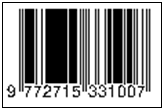Hubungan Kebahagiaan dengan Prestasi Akademik pada Mahasiswa Fakultas Kedokteran Universitas Sam Ratulangi
DOI:
https://doi.org/10.35790/msj.v7i1.55925Abstract
Abstract: Academic success and achievement are important goals for students in higher education. Feeling happy in individual life can help students to achieve their academic goals. This study aimed to determine the relationship between happiness and academic achievement in students at the Faculty of Medicine, Universitas Sam Ratulangi. This was a quantitative and analytical study. Respondents were students of class 2020 at Faculty of Medicine, Universitas Sam Ratulangi. Data were obtained by using the Oxford Happiness Questionnaire (OHQ) and grade point average (GPA). The Pearson correlation test showed that from 145 students, a significant positive relationship (p=0.033) with a weak correlation (r=0.178) was found between happiness and academic achievement. In conclusioin, there is a positive relationship between happiness and academic achievement in students at the Faculty of Medicine, Universitas Sam Ratulangi.
Keywords: happiness; academic achievement; medical students
Abstrak: Keberhasilan dan prestasi akademik merupakan tujuan penting bagi mahasiswa dalam jenjang pendidikan yang lebih tinggi. Perasaan bahagia dan puas akan kehidupan individu dapat membantu mahasiswa mencapai tujuan akademiknya. Penelitian ini bertujuan untuk mengetahui hubungan antara kebahagiaan dengan prestasi akademik pada mahasiswa Fakultas Kedokteran Universitas Sam Ratulangi dengan angkatan 2020 sebagai responden penelitian. Jenis penelitian ialah analitik kuantitatif. Data diperoleh menggunakan Oxford Happiness Questionnaire (OHQ) dan indeks prestasi kumulatif (IPK). Hasil uji korelasi Pearson menunjukkan bahwa dari 145 mahasiswa, didapatkan hubungan positif yang bermakna (p=0,033), dengan kekuatan lemah (r = 0,178), antara kebahagiaan dengan prestasi akademik. Simpulan penelitian ini ialah terdapat hubungan positif antara kebahagiaan dengan prestasi akademik pada mahasiswa Fakultas Kedokteran Universitas Sam Ratulangi angkatan 2020.
Kata kunci: kebahagiaan; prestasi akademik; mahasiswa kedokteran
References
Moussa NM, Ali WF. Exploring the relationship between students’ academic success and happiness levels in the higher education settings during the lockdown period of COVID-19. Psychol Rep. 2021;125(2). Doi: 10.1177/0033294121994568
Veenhoven R. Happiness. In: Michalos AC, editor. Encyclopedia of Quality of Life and Well-Being Research. Dordrecht: Springer; 2014. Available from: https://doi.org/10.1007/978-94-007-0753-5_1224
Lyubomirsky S, King L, Diener E. The benefits of frequent positive affect: Does happiness lead to success? Psychol Bull. 2005;131(6):803–55. Doi: 10.1037/0033-2909.131.6.803
Ng ZJ, Huebner ES, Hills JK. Life satisfaction and academic performance in early adolescents: Evidence for reciprocal association. J Sch Psychol. 2015;53(6):479–91. Doi: 10.1016/j.jsp.2015.09.004
Diener E, Suh EM, Lucas RE, Smith HL. Subjective well-being: three decades of progress. Psychol Bull. 1999;125(2):276. Available from: https://psycnet.apa.org/doi/10.1037/0033-2909.125.2.276
Huebner ES, Alderman GL. Convergent and discriminant validation of a children’s life satisfaction scale: Its relationship to self- and teacher-reported psychological problems and school functioning. Soc Indic Res. 1993;30(1):71–82. Doi: 10.1007/bf01080333
Gunasekara NSW, Jayasekara AJ. The impact of happiness on the academic performance of undergraduates. (An investigation of undergraduates of the Faculty of Humanities and Social Sciences, University of Ruhuna, Sri Lanka). International Journal of Humanities, Art and Social Studies (IJHAS). 2021;6(3):47-55. Available from: https://www.researchgate.net/publication/ 354253891
Kusuma IWA. Perbedaan kebahagiaan pada keluarga prasejahtera dan sejahtera di Desa Mopuya Utara Kecamatan Dumoga Utara Kabupaten Bolaang Mongondow [Tesis]. Manado: Fakultas Kedokteran Universitas Sam Ratulangi; 2014.
Yoo DM, Kim DH. The relationship between students' perception of the educational environment and their subjective happiness. BMC Med Educ. 2019;19(1):409. Doi: 10.1186/s12909-019-1851-0
Tabbodi M, Rahgozar H, Abadi MMM. The relationship between happiness and academic achievements. European Online Journal of Natural and Social Sciences: Proceedings. 2015;4(1):241–6. Available from: https://european-science.com/eojnss_proc/article/view/4227/1949
Khodabakhsh S, Rosli NA, Hushairi NA binti. Relationship between wellbeing and academic achievement among university students. 2019 IEEE 11th International Conference on Engineering Education (ICEED); 2019. Doi: 10.1109/iceed47294.2019.89948
Tuntiwarodom L, Potipiti T. Determinants of happiness and academic performance of economic students. Chulalongkorn Journal of Economics. 2008;20(3):183-200. Available from: https://so05.tci-thaijo.org/index.php/saje/article/view/100240
Okun MA, Levy R, Karoly P, Ruehlman L. Dispositional happiness and college student GPA: unpacking a null relation. J Res Pers. 2009;43:711-5. Doi: 10.1016/j.jrp.2009.03.01
Langevin EL. Undergraduate student happiness and academic performance: a correlation study [Dissertation on the Internet]. Arizona: University of Pheonix; 2013. Available from: https://eric.ed.gov/?id=ED554827
Alfiah G, Opod H, Sinolungan JSV. Gambaran kecerdasan emosional dan prestasi belajar pada siswa Negeri XI Manado. eBiomedik. 2013;1(1):64-70. Doi: 10.35790/ebm.1.1.2013.1164
Dilon C. Grading discrepancy in global education. PEOPLE: International Journal of Social Sciences. 2018;4(2):1611–24. Doi: 10.20319/pijss.2018.42.16111624
Downloads
Published
How to Cite
Issue
Section
License
Copyright (c) 2024 Ray Harrison, Hendri Opod, Jehosua S. V. Sinolungan

This work is licensed under a Creative Commons Attribution-NonCommercial 4.0 International License.
COPYRIGHT
Authors who publish with this journal agree to the following terms:
Authors hold their copyright and grant this journal the privilege of first publication, with the work simultaneously licensed under a Creative Commons Attribution License that permits others to impart the work with an acknowledgment of the work's origin and initial publication by this journal.
Authors can enter into separate or additional contractual arrangements for the non-exclusive distribution of the journal's published version of the work (for example, post it to an institutional repository or publish it in a book), with an acknowledgment of its underlying publication in this journal.
Authors are permitted and encouraged to post their work online (for example, in institutional repositories or on their website) as it can lead to productive exchanges, as well as earlier and greater citation of the published work (See The Effect of Open Access).










